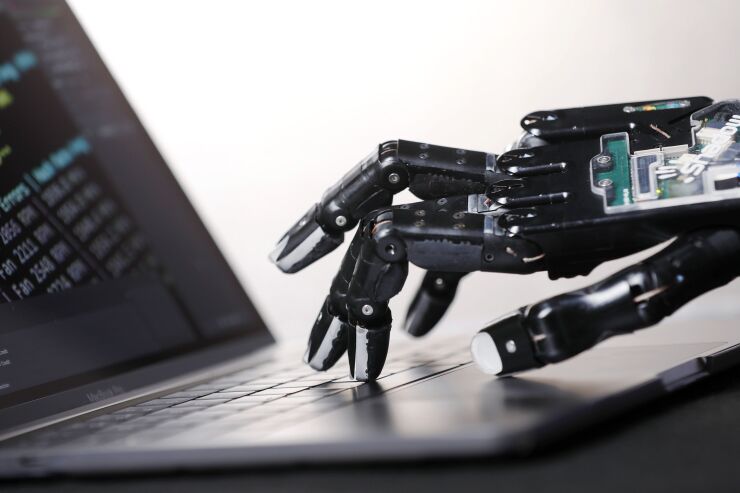While
“There isn't a lot of focus on what tools are out there so that I can make my business better with AI,” Walker says. “The ubiquity of the talent pool and the capabilities are not out there yet — it's still maturing.”
Walker spoke with Employee Benefit News on how AI can actually be a catalyst for creativity and why data scientists are a critical piece to the puzzle.
Are companies doing enough to embrace artificial intelligence?
I don't think so. When they're thinking of new ideas, AI is not the first thing that jumps to mind. They're thinking, we’ve got a business process, how can I make that process better? They're thinking of operational improvements as opposed to artificial intelligence improvements. I think that's a function of two things. One, not being familiar with what is available in AI to help them and two, falling back on what their comfort zone is and what their experience has been.
From a technology standpoint, companies are beginning to realize that they need to invest in it. They're needing to create incubating spaces within their organizations where they can see how they can leverage AI.
What are the consequences for companies who haven’t started utilizing AI?
It's the lack of understanding of how it can improve their business. Ironically, there's a lot of AI in their life that they're not really aware of. Flashy things like talking to your phone and transcribing what you're talking about, for example. But that doesn't really translate to, how can I use this in my business?
You need to have that deeper expertise to integrate it into your ecosystem. That’s the problem Veritone is solving: providing people a platform so that when they have data scientists make those killer breakthroughs, how can they get that to scale? It's understanding the convenience it provides that gives people the trust to make that transition.
What is holding companies back from implementing these systems and tools?
It's a function of the tools available. When the web first started, for example, you needed a programmer who needed to know HTML to know how servers work. There was a lot of stuff that was completely a foreign to their core business focus. But now it’s intrinsic. And it's almost a commodity now. Right now it’s the same thing for AI.
Another component that a lot of people are missing is the infrastructure. As people dive into the AI space, they're coming up against those challenges. The data science piece is understanding the value of the information you have and how you can use that information to solve other problems.
There is a fear that AI is going to replace jobs. Is that making companies more cautious about utilizing new technologies?
AI doesn't really adapt well. It will give people different opportunities to do different interesting things that they'd never conceived of before. Workers will not be unemployed; they'll be differently employed. And until AI has a desire for power or for connection, it's only going to do what you told it to do. So while AI can do a lot of things, it can only do a lot of things that it's trained on. The concept of self-learning AI is still in its nascency.
All that these new technologies allow you to do is reshape how you can use human focus. What AI doesn't have that humans have is desire. If I build an engine that recognizes faces, it doesn't have a desire to choose one face over another. It's just pure information. But desire and intent, and more importantly, creativity, comes from a human. If I started giving you a bunch of different tools, you're going to come up with a lot more solutions and ideas and concepts that you weren't able to do before.






